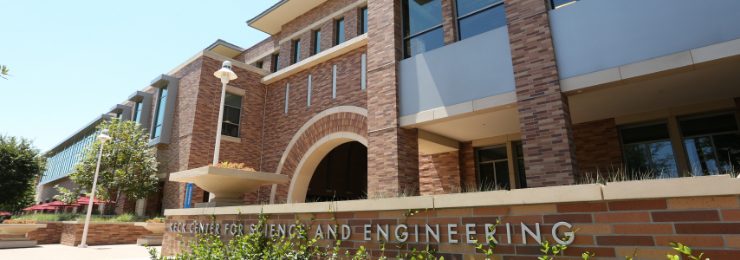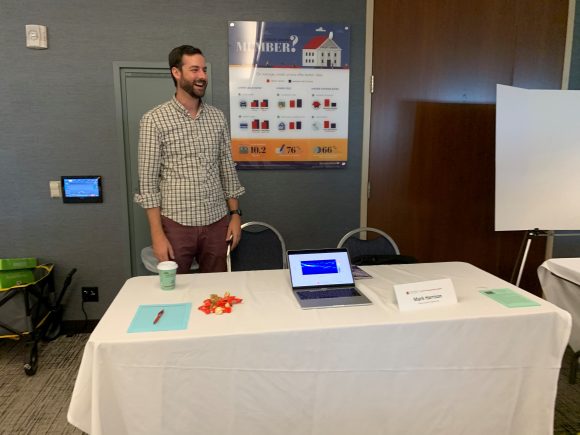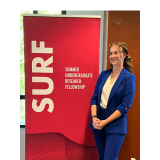
Exciting Research Opportunities for Undergraduates Available From New Faculty Member Dr. Mark Harrison! Dr. Harrison launches the Harrison lab, works on developing photonic devices
November 5, 2019

After spending several years working in the engineering industry, Dr. Mark Harrison has found a new home at Chapman University’s Fowler School of Engineering. Dr. Harrison’s background is in working with optical sensors, including gas sensors that could be used for local environmental analyses, and installing public transit hardware to provide real time arrival predictions, passenger counting, and automated voice devices.
He has always been interested in teaching and academia, and is excited to have made the switch to teaching this August. He is especially grateful to be at Chapman. As other institutions could be either teaching-heavy or research-heavy, Dr. Harrison said he likes Chapman because it is an “opportunity to find the middle ground” between teaching students and conducting research.
“It’s a place I can really teach and get to know students while also still having enough time and resources to do research, and be the traditional professor model of the teacher-scholar,” Dr. Harrison said.
Dr. Harrison has “definitely enjoyed” teaching at Chapman so far, and is especially grateful for the support of his colleagues and students while he learns the ropes. He is also looking forward to recruiting students to participate in his research which is focused on the development of new architectures for integrated photonic logic circuits used in optical computing with the goals of increasing energy efficiency and information security.

Dr. Harrison at the annual Faculty Research Expo put on by the Center for Undergraduate Excellence.
“By helping with this research, students can dive deep into optics, material science, and electrical engineering. This is a unique opportunity because there aren’t too many classes offered in these areas,” Dr. Harrison said.
Dr. Harrison is looking for undergraduate students to engage in lab projects that investigate novel integrated optical and photonic devices, primarily for digital information processing, by applying computer architecture and digital logic principles to novel systems. As the research grows, such devices could also potentially be re-purposed for biosensing and chemical sensing applications. Because his research is new, Dr. Harrison said this is a great chance for students to “really get in at the ground floor, and influence the initial directions” that the project takes. Such flexibility can be very useful to undergraduate students.
When he isn’t researching the development of photonic devices for use in large-scale digital logic circuits, you can find Dr. Harrison playing video games, riding his bike around his neighborhood in L.A., or listening to his two-year old son sing the ABC’s in silly voices.
Dr. Harrison is actively looking for undergraduate student researchers! If you are interested in doing research with him, please contact him at mharrison@chapman.edu.
Follow CUE’s Facebook and Instagram for up-to-date research opportunities! Visit CUE’s web page for research funding, events, and prestigious fellowship and scholarship programs!
